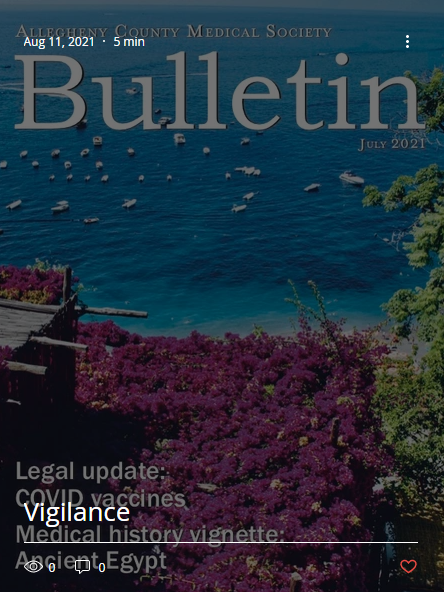
When I was a child, my summers were spent in a magical land by the sea in the care of my grandmother and uncle. At that time, the city was known as Bombay, and we lived in a flat in a seaside suburb of Old Bombay. The sun beat down hard on the stone and concrete buildings from the early hours of the morning, and it was far too hot to venture out during most of the day. During the monsoon, the rains poured down relentlessly for days on end, pausing briefly now and then for a day or so of oppressively humid but sunny respite before the faucet reopened. If you’ve never seen the monsoon firsthand, you wouldn’t know that it stays dark and cool and wet every day for weeks on end, with blowing winds that noisily test the shutters and the latches on the windows. You wouldn’t imagine that you could be cold enough to need a sweater and pile on the blankets. Even the mosquitoes seek refuge indoors. So picture me, as a little girl, curled up under shawls under a palanquin of mosquito netting with my grandmother, who kept me entertained with stories of her own childhood and our relatives. After lunch, there was naptime, and story time, and tea time with Marie biscuits and strong Indian tea with hot milk and delicious sugar that looked like crushed rock candy to my young American eyes. “The mosquitos like you more because American blood is sweeter,” she’d say as she rubbed lemongrass-scented mosquito repellent on me.
It was a quarantine of sorts.
If I couldn’t sleep in the hot afternoons, I would amuse myself by sitting in the balcony reading while listening to the rain. If the sun was out, I’d scan the large courtyard below. I had found a 10 cc syringe in a cupboard (my grandfather was a physician and my uncle the department head of medical biochemistry), and used it to perfect my aim. I would fill it with tap water and deploy it from three stories above to break up fights between cats below who were squabbling over the shade of a Fiat. It also was fun for squirting roosters who were trying to bully chickens.
I taught myself to tell time by the sounds I heard. At five o’clock in the morning, it was crow time. All the crows of Bombay would wake simultaneously on the rooftops and raucously caw their morning greetings to each other. The soft kerthunk in the mailbox meant the morning papers had been delivered. The cacophony of crow time would give way to the cooing of pigeon time around six. Six-thirty was my favorite time, because melodious waves of sweetly chittering sparrows drove back all the larger birds. Now this was a lovely way to wake up. The milkman rang the doorbell, followed by the softer kerthunk in the mailbox of the daily flower packet. I always thought the wild city roosters were lazy as they didn’t join the fray of calling birds until seven, but then, they strolled about crowing randomly all day. At eight o’ clock, the roving neighborhood vendors would start calling up to the balconies above, hoping to be summoned up. The fishmonger would make her rounds at nine, and the lady who would collect bottles and cans for recycling would announce herself from the pavement around 9:30 a.m.
At 10 sharp each day, a wondrous thing happened. You knew never to be on the telephone at 10, because you wouldn’t be able to hold a conversation. The neighborhood air raid siren would conduct a test. (It always worked.) All human activity stopped, because no one could hear themselves think over the din of the siren. I wondered why there was an air raid siren at all. Was it a vestige from World War II? Or, more likely, from the India-Pakistan conflicts? Or was it a drill for an impending nuclear attack? In any case, there were no bomb shelters, and to my knowledge there was no evacuation plan no matter the threat. The siren was basically a daily reminder that you could face attack and death, and that there was little you could do about it. (And eight-year-old me mused that if the enemy were REALLY devious, the attack would come at 10 a.m., when everyone was complacently waiting out the air raid siren test.)
All of this was good preparation for COVID quarantine: the habit of solitude, the need to work and amuse oneself, the ability to observe and appreciate nature, and realizing that disaster could strike at any time without much recourse, and that humans become desensitized to daily warnings of an existential threat, no matter how strident.
Time in the last year had a strange quality; either it passed too quickly or too slowly. Every day was like the next; besides the weather, only bits of seasonal holiday décor served to tie events to months. It drove home the point of how much social events (birthdays, anniversaries, weddings, births, graduations, holiday parties, travel) anchor us in temporal reality. “Oh yes, that happened two weeks ago, right after we came back from the trip!” Even now, in this strange time which we hope is the tail-end to the pandemic, time passes both too quickly and too slowly.
We’ve all learned the skills of survival in solitary confinement and are finally tasting bits of freedom thanks to lower case rates and higher vaccination rates. Restrictions are easing all over the country (whether wise or unwise given local vaccination rates). Much of America is soothing itself with the platitude that “the pandemic is over!” just as it soothed itself in the early days with “it’s just the flu!” or defended defying mask orders with “I’m tired of this!” Humans need solace, even when it means ignoring an inconvenient truth. I learned that too in India from experience. The average citizen there thinks that the best doctor is not the one who accurately diagnoses them with a serious illness, treats them aggressively and thoroughly and keeps them informed at every step. No, this is a troublesome doctor who causes them unnecessary stress and worry. In their eyes, the finest doctor is the one who reassures them that “it’s nothing serious” and tells them everything will be OK, even when the actual diagnosis is pancreatic cancer.
Most humans would rather go blithely to their graves, panicking only in the last few seconds. Few care to have their eyes opened and be an active and intelligent participant in the fight against illness, danger and death. This is perennial human nature, illustrated in the stories of most religions as well as in the Matrix movies. Ignoring the regrettable politicization of the term, humanity has always preferred the “blue pill” in order to avoid psychological discomfort and pain. There’s also Jack Nicholson in “A Few Good Men,” shouting “You can’t handle the truth!”
It is such a sweet temptation to ignore the daily air-raid siren of news reports about the rise in Delta variant spread and to believe the blissful story that the pandemic is over. The Delta variant is sweeping the country, pockets of unvaccinated people are going to be hotspots, not only for disease but for further mutations, and unvaccinated children are going to be reservoirs at a minimum as school opens. We may be about to witness a frightening illustration of Darwinism in action as the unvaccinated or under protected are exposed to Delta. And then there’s the news that Epsilon variant has been reported to evade all current vaccines. A mutation that adds the increased transmissibility of Delta to the evasive capability of Epsilon would start the pandemic from square one again. One must remember that COVID is a devious enemy which will think nothing of striking during the air raid siren tests when we are all desensitized and complacent.
Stay vigilant, my friends.
Dr. Paranjpe is an ophthalmologist and medical editor of the ACMS Bulletin. She can be reached at [email protected].

